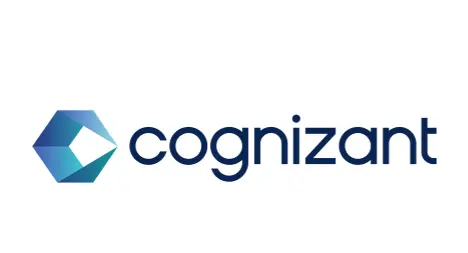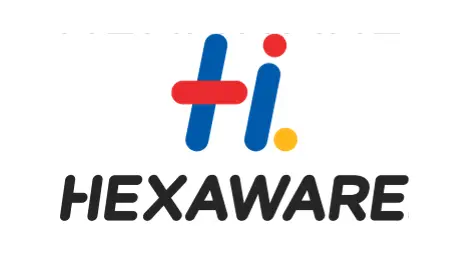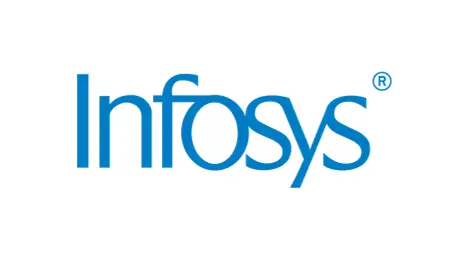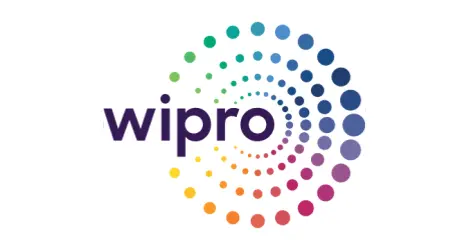Key Highlights
Overview of Ethical Hacking Course in Chennai
Our Ethical Hacking Course is comprehensive and includes in-depth training on a variety of security techniques and methods, including network monitoring, virtualization, cryptography, footprints, Linux hacking, scanning, bug detection, penetration testing, trojan detection, steganography, sniffing, email tracking, bombing, Dos/DDoS attack, XSS attack, iframe attack, wireless LAN hacking, SQL injection, code-breaking, mobile hacking, penetration, testing, firewall, phishing sites, ids, system hacking, etc. In this training, you will also learn how to use several hacking tools, including Burp Suite, N-map, and Nessus. Grab your spot to learn an ethical hacking course at affordable fees.
We provide the best facilities at a reasonable course fee to help students pursue their passion for learning. To get the best learning results, experienced trainers have created the curriculum. Our Ethical Hacking certification focuses on students’ overall development and career progress while providing them with the most recent tools and hands-on training.
Future of Ethical hacking in India
In India, the future of ethical hacking is quite bright. In the upcoming years, there will undoubtedly be an increased demand for ethical hackers as more and more people turn to the internet for banking, shopping, communication, and business, hackers are finding that cyberspace is a lucrative place to operate. Hackers use digital platforms to hack into computer systems in order to steal data, conduct fraud, or put a system at risk by destroying files and documents.
As global internet activity increases, there is an increasing demand for ethical hackers. In the next two years, it is predicted that there will be a demand for up to 1 billion ethical hacker professionals. The demand for ethical hacking experts is expected to skyrocket, especially after the COVID-19 epidemic, Interactions between people and business communications have gone digital.
Why an ethical hacking course at BTree?
BTree System offers the best ethical hacking training course, with a focus on real-world practical training as well as interview-oriented soft-skill training. With us, you can advance your career in hacking and become a professional Hacker. Our ethical hacking certification is taught by professors and industry professionals to assist you in providing the best hacking course that matched industry standards.
We make certain that you get the best ethical hacking training in Chennai. We’ll go through things like traceroute analysis, identifying crypters, GPS mapping tools, and many more throughout this training.
Talk To Us
We are happy to help you 24/7
Career Transition
60%
Avg Salary Hike
40 LPA
Highest Salary
500+
Career Transitions
300+
Hiring Partners
Skills Covered
Footprinting and Reconnaissance
Scanning Networks
Vulnerability Analysis
System Hacking
Malware Threats
Sniffing
Social Engineering
Session Hijacking
Firewalls and Honeypots
Hacking Web Servers
Hacking Wireless Networks
Hacking Mobile Platforms
Cryptography
Tools Covered









Course Fees
23
Sep
SAT - SUN
08:00 PM TO 11:00 PM IST (GMT +5:30)
30
Sep
SAT - SUN
08:00 PM TO 11:00 PM IST (GMT +5:30)
07
Oct
SAT - SUN
08:00 PM TO 11:00 PM IST (GMT +5:30)
Unlock your future with our
"Study Now, Pay Later"
program, offering you the opportunity to pursue your education without financial constraints.
EMI starting at just
₹ 2,916 / Months
Available EMI options
3
Months EMI
6
Months EMI
12
Months EMI

Corporate Training
Enroll in our corporate training program today and unlock the full potential of your Employees
Curriculum for Ethical Hacking Certification
 Introduction to Ethical Hacking
Introduction to Ethical Hacking
- What is Ethical Hacking?
- What is Cyber Security?
- What is the difference between both
- What are the Learning Scope
- 5 Phases of Ethical Hacking
 Footprinting (Reconnaissance-Passive)
Footprinting (Reconnaissance-Passive)
- Types of Footprinting
- Footprinting Tools and Countermeasures
 Enumeration (Reconnaissance - Active)
Enumeration (Reconnaissance - Active)
- Enumeration Techniques
- Enumeration Countermeasures
 Network Scanning
Network Scanning
- Network Scanning Technique
- Network Scanning Countermeasures
 System Hacking Methodology
System Hacking Methodology
- System Hacking methodology
- Steganography
- Steganalysis Attacks
- Covering Tracks
 SQL Injection Attacks
SQL Injection Attacks
- SQL Injection Attacks
- Injection Detection Tools
 Kali Linux
Kali Linux
- Installation of VM’s in Windows and MAC
- Configuration of VM’s and Installing OS
- Installing Software
 Metasploit
Metasploit
- Introduction to Metasploit
- Working with Metasploit
- Windows Hacking and Advanced Techniques
 N-map
N-map
- Scanning using Nmap Tool
- Advanced Commands and Techniques class=”streight-line-text”
 Burp-Suit
Burp-Suit
- Introduction
- Installation
- Configuring burp-suit with browsers
- Working with burp-suit
 Sniffing
Sniffing
- What is Sniffing
- Packet Sniffing Techniques
- How to defend against Sniffing
 Malware Threats
Malware Threats
- Types of Malwares
- Types of Trojans
- Trojan Analysis
- Trojan Countermeasures
 Virus and Worms
Virus and Worms
- What is Virus and How it Works?
- Virus Analysis
- Computer Worms
- Malwares
- Analysis Procedure and Countermeasures
 DoS and DDoS
DoS and DDoS
- What is Denial of Services (DoS)
- What is Distributed Denial of Services (DDoS)
- Types of Attacks
- DoS/DDoS Attack Techniques
- Botnets
- DDoS Attack Tools
- DoS/DDoS Countermeasure
 Session Hijacking Techniques
Session Hijacking Techniques
- Session Hijacking Techniques
- Countermeasure
 Servers Attacks - Web Server, File Servers
Servers Attacks - Web Server, File Servers
- Different Types of Webserver Attacks
- Attack Methodology and Countermeasures
 Hacking Web Applications
Hacking Web Applications
- Different Types of Web Application Attacks
- Web Application
- Hacking Methodology and Countermeasures
 Wireless Networks Attacks
Wireless Networks Attacks
- Wireless Encryption
- Wireless Cracking Methodology
- Wireless Cracking Tools
- Wireless Security Tools
 IDS, IPS, Firewalls and Honeypots
IDS, IPS, Firewalls and Honeypots
- Firewall
- Intrusion Detection System (IDS)
- Honeypot Evasion Techniques
- Evasion Tools
- Countermeasures
 Cloud Computing Techniques
Cloud Computing Techniques
- Various Cloud Computing Concepts
- Cloud Computing Threats
- Cloud Computing Attacks
- Security Techniques and Tools
 Cryptography
Cryptography
- Different Types of Cryptography Ciphers
- Public Key Infrastructure (PKI)
- Cryptography Attacks
- Cryptanalysis Tools
“Accelerate Your Career Growth: Empowering You to Reach New Heights in Ethical Hacking ”
Training Options
Live Classroom Training
-
50+ hours of live classroom training -
Real-Time trainer assistance -
Cutting-Edge on Ethical Hacking tools -
Non-Crowded training batches -
Work on real-time projects -
Flexible timings for sessions

Live interactive online training
-
50+ Hours of online Ethical Hacking Training -
1:1 personalised assistance -
Practical knowledge -
Chat and discussion panel for assistance -
Work on live projects with virtual assistance -
24/7 support through email, chat, and social media.
Ethical Hacking Training Certification
Ethical Hacking certification is one professional certification that confirms that the applicant has achieved the skills required to work as an ethical hacker.
Since the IT business is growing and expanding, earning your certification and help you start a successful career as an ethical hacker. Our certification is recognized globally.
We provide the best Ethical Hacking Training. Our trainers are professionals in the field of hacking and cyber security with 10+ years of experience.
They will assist you to upgrade skills by using the most up-to-date techniques and approaches in the market. It will increase the worth of your Resume and help you land a job with one of the world’s biggest MNCs. In addition, you will be able to explore a range of job opportunities.
Knowledge Hub with Additional Information of Ethical Hacking Training
What is the definition of an ethical hacker?
When we talk about Ethical Hacking, we mean hacking that is founded on ethical or moral standards and has no harmful purpose. It is defined as any sort of hacking authorized by the target system’s owner. It may also refer to the process of implementing active security measures to protect systems against hackers with destructive data privacy objectives.
This refers to the act of breaking or cracking security protocols implemented by a system in order to find loopholes, data breaches, and possible risks. Only if regional or corporate cyber laws/rules are followed is it considered ethical. This is technically referred to as penetration testing.
In conclusion, an ethical hacker hacks into the targeted system before a dangerous hacker can. This helps the organization’s security staff to successfully close a weak point that would otherwise allow an attacker to access the system or execute a hack
What separates ethical hackers from malicious hackers?
Ethical hackers use their expertise to protect and develop a company’s technology. They provide these companies with a valuable service by looking for loopholes that might cause a security breach.
An ethical hacker informs the firm about the discovered vulnerabilities. They also give remedial guidance. The ethical hacker often retests to ensure that the security breaches are fully repaired with the organization’s permission.
Malicious hackers attempt illegal access to a valuable resource (the more sensitive, the better) in order to profit financially or acquire personal fame. Some malevolent hackers damage websites or destroy backend systems for enjoyment, reputational harm, or financial gain. The methods utilized and the vulnerabilities discovered went unreported. They are not worried about improving the security posture of the firm.
What Are the Various Types of Hackers?
These hackers have no harmful intent and hack systems for entertainment or for a variety of other purposes, they generally notify the owner of any dangers they discover. The best way to tell the difference between White Hat, Black Hat, and Grey Hat hackers is to look at their intentions.
White Hat Hackers: White Hat hackers are those meant to be an individuals that engage in activities. These are the ones who come to our help on the dark web. White hat hackers also referred to as ethical hackers, are professional ethical hackers who help the government and companies by undertaking penetration testing and uncovering security problems. Ethical hackers use a variety of tactics to defend themselves against black hat hackers and other cybercriminals. white hat hackers enter our system with the noble intention of detecting weaknesses and aiding you in eliminating viruses and malware.
Black Hat Hackers: Black hat hackers are those opposite of Ethical Hacking which refer to actions that involve security breaches. Black Hat hackers use prohibited ways to breach systems or destroy data. A black hat hacker’s intention is usually money. These hackers search for loopholes in individual computers in companies and banking systems. They can hack into your network and steal access to your personal, commercial, and financial data by exploiting any weaknesses they identify.
Grey Hat Hackers: Grey Hackers are those do not request permission to enter your system. However, Grey Hats differ from Black Hats in the fact that they do not hack for personal or third-party gain, who are between the white hat and black hat hackers are known as grey hat hackers. Grey hat hackers may not use their capabilities for personal gain, but they may have both good and evil intentions. For example, a hacker who breaks into a company and detects a weakness may publish it to the public or notify the other firm. However, when hackers utilize their hacking abilities for personal benefit, they become black hat hackers.
Salary of an Ethical Hacker: The salary of an ethical hacker in India ranges according to the candidate’s skills, past job experience, and the workplace. In India, the average pay for a Certified Ethical Hacker is 5.3 lakhs per year. In India, the usual entry Certified Ethical Hacker earns 4 lakhs per year. In India, the average salary for a semi-experienced Certified Ethical Hacker is 7.5 lakhs per year. In India, the average annual pay for a senior-level professional Certified Ethical Hacker is 25 lakhs.
Why might an ethical hacking profession be the best choice?
You’ve definitely seen that ethical hacking is becoming more popular, and the scope of this job will increase in the future. Ethical hackers appear to be corporate warriors who use as a weapon to defend the firm. An ethical hacker should be aware of the risks of attacks and be responsible for resolving such concerns. This is an important part of the internet business world, or an unskilled hacker may place a company in heated water.
This growing profession requires the learning of new skills and techniques. Not to add that ethical hackers are paid well in the industry. What matters most in this industry is experience; the more experience you have, the more likely you are to get promoted. Adopting your career as hacker will offer benefits in terms of knowledge, skill, experience, work stability, employment satisfaction, career progress, and profitable salary.
What are the fundamental principles of ethical hacking?
Hackers stick to four important protocol concepts:
Maintain your legal status. Before accessing and executing a security evaluation, obtain proper authorization.
Define the scope. Set the scope of the assessment to ensure that the ethical hacker’s work remains lawful and within the allowed parameters of the organization.
Security defects should be reported. All risks discovered during the evaluation should be reported to the organization. Give recommendations on how to resolve these vulnerabilities.
Maintain data sensitivity. Depending on how sensitive the information is, ethical hackers may be asked to sign a non-disclosure agreement in addition to other conditions and limitations set by the examined company.
Types of hacking
Hacking is normally legal as long as it is done for the purpose of evaluating vulnerabilities in a computer or network system. We can divide hacking into many categories based on what is being hacked. Here are several examples:
Website Hacking: Hacking a website is gaining illegal access to a web server and its accompanying software, such as databases and other workflows.
Password Hacking: This is the technique of retrieving secret passwords from computer data that has been saved or sent.
Computer Hacking: This is the process of gaining illegal access to a computer system by obtaining a computer ID and password.
Email hacking: This involves utilizing an email account without the owner’s permission and gaining illegal access to it.
Our Lovely Student feedback
Hear From Our Hiring Partners
Lead recruiter at Wipro
System Engineer
BTREE's Placement Guidance Process


Placement support
Have queries? We’re here for you! We support you with 24X7 availability with all comprehensive guidance.

Sample Resume
Build a robust resume with battle-cut tools to land your dream job. Impress any recruiter with a rock-solid CV and personality!

Free career consultation
Overwhelmed about your future career? We offer free career consultation that helps you to figure out what you want to become.
Our Graduates Works At


FAQ for Ethical Hacking Certification
Why should I choose the Hacking/cyber security as a career option?
Due to the rise in cyber threats and cybercrime, a large number of commercial companies are in desperate need of ethical hackers. These professionals are needed not just in the IT sector but also in many other sectors.
Why should you enroll in the Ethical Hacker course in Chennai at BTree?
The Ethical Hacking course at BTree will provide you with hands-on experience, you will learn how to safeguard the organizational IT infrastructure, system hacking, and many more. You will be working on real-time projects with high relevance in the corporate world as part your training program with us.
Do you assist students with placements after completing Ethical Hacking Training in Chennai?
Yes, definitely we have secured partnerships with over 1200+ small, medium, and large companies to support students with placements. Once they have completed the course, the placement team will guide each student with the interview process.
What are the eligibility criteria for taking this Ethical Hacking Certification?
This course is open to any graduate student who wants to start a career in cyber-security. This hacking certification is also suitable for Tech Support Engineers, Network Administrators, Network Engineers, Sys Admins, IT Facility Managers, IS/IT Researchers and Specialists, IT Security Staff, Systems Engineers, and Senior System Engineers.
Is learning ethical hacking beneficial?
Yes, absolutely. 3.5 million vacant for ethical hacker positions globally by 2021. The demand for ethical hackers exceeds supply. This course will help you become a skilled ethical hacker and boost your chances of working for big multinational corporations.
What if I miss a class?
The BTree system records each lesson for students, allowing them to catch up on lessons they missed. You can study from the provided recordings as needed before the next session.
What is the difference between online and classroom training?
It is entirely up to your own choices because both serve the same ambition. Online training as well as classroom training both provide effective training through a variety of course materials to help you develop your ethical hacking abilities
What payment methods are available?
You can pay for both online and offline training using the methods listed below, and a virtual receipt will be sent to you immediately on your registered email id.
• Online banking using a visa, Mastercard, or debit card.
• Cash
• Paytm/Google pay/Phone pay
• There is an EMI option available.
Can I meet the teacher before starting the course?
Yes, you are warmly welcomed, please feel free to introduce yourself and spend some quality time with the trainers. This can lead to a friendly manner between the trainer and the student before joining training. We do provide free demo sessions and discussion sessions.
Do you provide training materials?
Undoubtedly, yes, after completing the enrollment process, we do offer hacking tools and course materials with lifelong access.
Are you Located in any of these locations
Adyar
Anna Nagar
Besant Nagar
Ambattur
Guindy
K.K. Nagar
Koyambedu
Chromepet
Nandanam
OMR
Perungudi
Mylapore
Poonamallee
Porur
Saidapet
Sholinganallur
T. Nagar
Teynampet
Vadapalani
Velachery
Find Us
Address
Plot No: 64, No: 2, 4th E St, Kamaraj Nagar, Thiruvanmiyur, Chennai, Tamil Nadu 600041





















